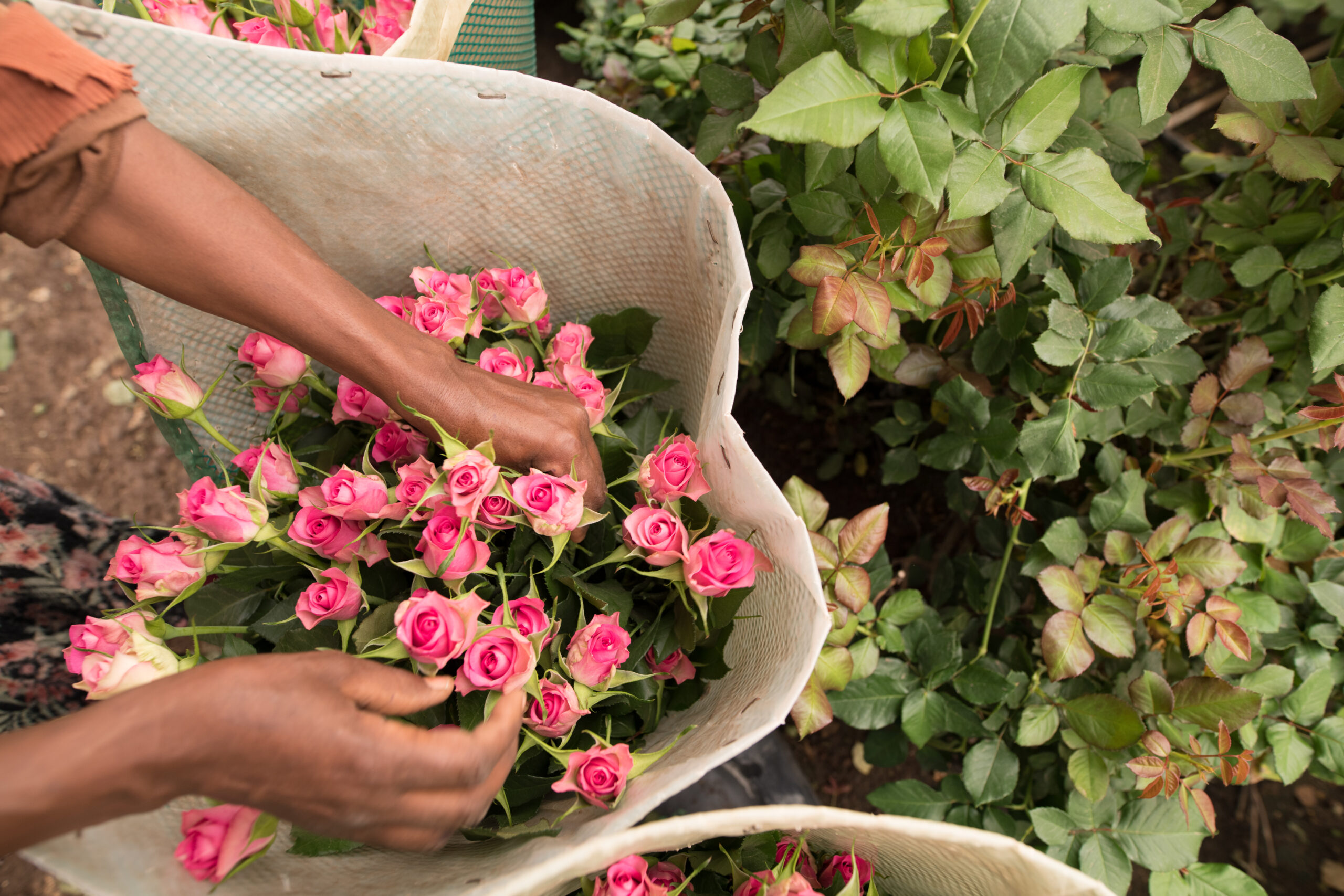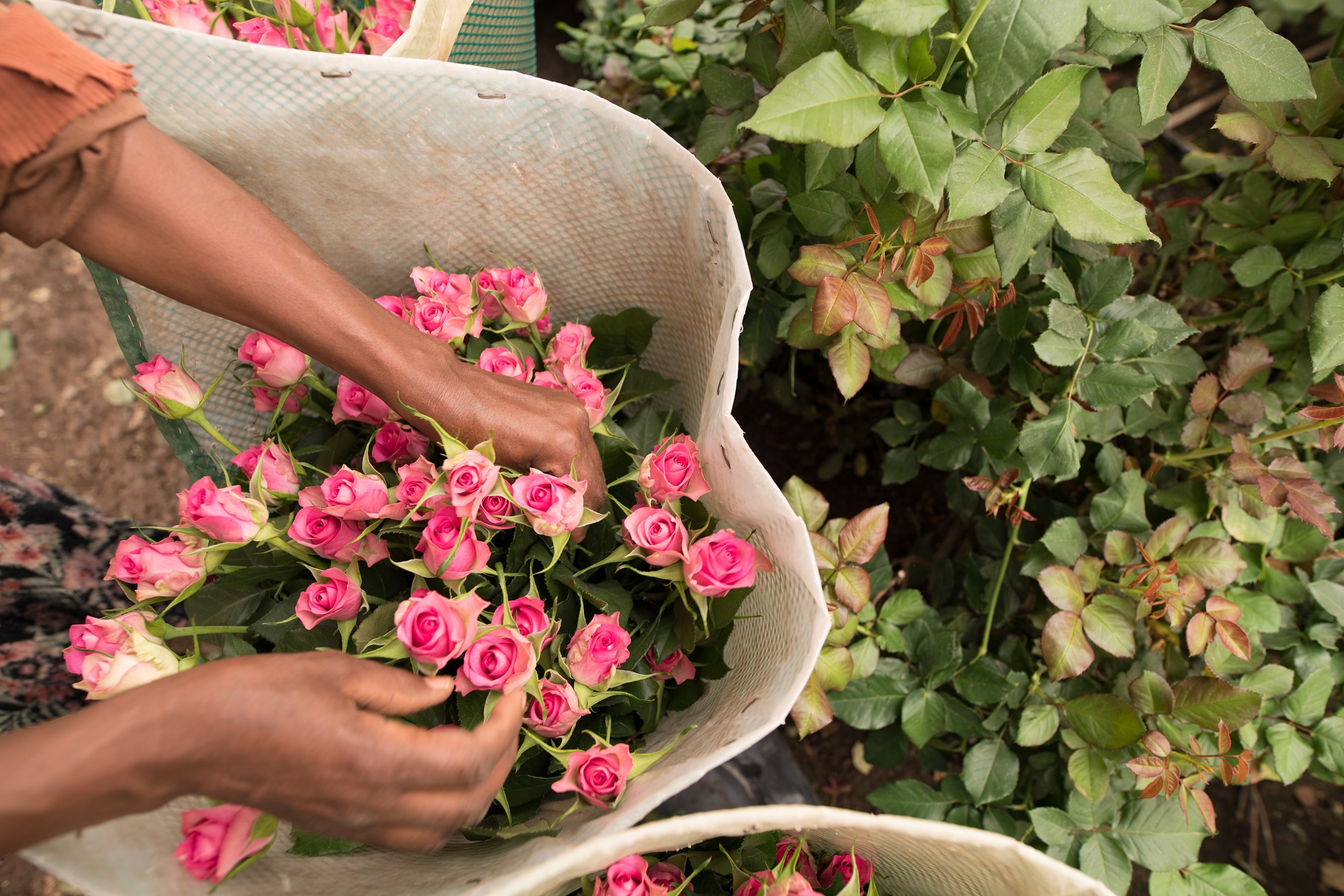When the first case of Covid-19 was reported in Tanzania on March 16, 2020, stakeholders in the flower industry, immediately started to think about how to cushion the workers and the businesses from effects of the pandemic.
Three major flower farms namely; Dekker Bruins Tanzania, Fides and Mount Meru Flowers not only focused on how to remain afloat, but also initiated several measures to protect the rights and health of their workers despite disruption of the international markets.

Health and safety of the workers was maintained
A visit to the farms by the Tanzanian Plantation and Agricultural Workers Union (TPAWU); a registered trade union drawing its membership from the agricultural sector, revealed that, the companies installed facilities aimed at protecting their workers as well as undertaking awareness and education campaigns.
The awareness forums were undertaken by the management teams in collaboration with the TPAWU officials. The workers were required to adhere to all protocols on prevention of the Covid-19 disease such as; maintaining social distancing, washing hands (with soap and water) regularly, wearing facemasks, using sanitizers and changing their home clothing upon arriving at their respective work stations.
At Dekker Bruins and Fides farms, workers confirmed that there were no changes in the employment conditions, as noted by Ms Rosalia Stephen Kanoje; chairperson of the women workers committee at Fides farm. “The top management treated us like a family rather than workers, they even gave us routine counselling due to the fear caused by media reporting of the increasing death toll in the Western countries., said Ms Kanoje”
Jobs were protected
The management of Dekker Bruins farms ensured that none of their workers lost their job.
“We had no plans to retrench the workers, send them on unpaid leave or reducing their working hours. We stood with our workers, protected their employment even though we were unable to sell/export our products, and we believed that the same people could do better instead of retrenching them,” says Mr Joel Laanyuni Kivuyo, an assistant farm manager at Dekker Bruins farm.
Further, the management of Dekker Bruins farms prepared a contingency plan to ensure continuity of production should the Tanzanian government declare a total lockdown of the country and/or some areas. The company was to provide 300 beds and mattresses as well as sanitary pads to female employees to live comfortably within the company’s three farms, located in Arusha, Moshi and Kilimanjaro areas.
Mount Meru Flowers reached a mutual agreement with the workers representatives for one month half-salary paid leave, for the workers in the transport and administration sections. The workers were also assured of returning to work with the same employment conditions – after their month-long leave is over.
Ms Rose Lomnyaki, the chairperson of the women workers committee at Dekker Bruins farm, said the farm ensured the welfare of the workers was maintained.
“We used to hear that workers from other farms were sacked or sent on unpaid leave, but this was not the case at our farms. Our employer encouraged us to remain resilient and supportive since the pandemic will come to pass,” said Rose.
During the pandemic, fear and panic were high amongst the management teams and workers. However, it was revealed that, the participation of the workers and TPAWU representatives in decision making minimized the possibility making errors which might have affected the workers negatively. Similarly, the agreed decisions were announced to sub-sections meetings.
External support
Both Dekker Bruins and Mount Meru flower farms, received external support from different stakeholders. They received awareness creation materials from the government such as, the Covid-19 prevention manual, as well as social media advertisements, to create awareness about the disease. Dekker Bruins farm further received support from Tanzanian Horticultural Association in securing air freights at the height of the pandemic while all the 900 workers at Mount Meru flower farm each received 25 kilograms of rice, 10 litres of cooking oil and 20 kilograms of rice from their employer.
Boosting production – post Covid-19 period
The managements of the three farms note that their production capacities have been restored to the pre-coronavirus period levels and that, the workers who were on unpaid leave, are back to their respective work places.
By Katusime Kafanabo; Head, Department of Gender, Youth and Education – Tanzania Plantation and Agricultural Workers Union (TPAWU)




